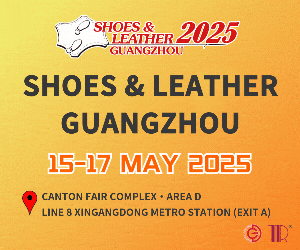The impacts of the TPP

We have spoken with Mr. Javier Plascencia, President of CICEG - Chamber of the Footwear Industry of the State of Guanajuato, to know his views and expectations about the Trans Pacific Partnership
For Mr. Plascencia the TTP, a free trade agreement between the US, Mexico and 11 Pacific countries, is a beneficial free trade agreement for its 12 member countries and “will allow our manufacturing sector in Mexico to increase its exports, mainly to the nations with which we did not have a free trade agreement previously signed”.
Following a reflection about the recently announced TPP (available here), we have asked Mr. Plascencia to give us his quick view on the elimination of the import's tariffs, the impact of the deal in the footwear industry and the non-tariff related dimensions of this trade agreement.
There is an expectation that import’s tariffs can be cut to zero. When can we expect a complete elimination of tariffs to be fully implemented in the region?
The footwear manufacturing sector is a critical industry in the Mexican economy, and this is why we were able to achieve better conditions from the negotiations, therefore the tariff reduction for several products will be in a gradual basis during a period of 10 or more years. On the other hand, we also realize that the import duties of several products will immediately be reduced to zero, and this is according to the individual negotiations of each country with its counterparts.
Footwear is frequently pointed as one of the industries which will benefit the most with this deal. In your view what will be the main gains of this deal for the footwear industry in the 12 involved countries? And for Mexico in particular?
Specifically for the Mexican footwear sector, I want to be clear by mentioning that our country already has free trade agreements with the United States, Canada, Japan, Chile and Peru. Within this context, given the conditions of world international trade, we were somehow forced to participate in the TPP negotiations in order to maintain our export markets and in order to influence in the establishment of measures that encourage fair trade practices among all the participants in the TPP.
I want to reiterate that as a result of our strategic geographical location, as well as the current free trade agreements signed and the competitive advantages achieved, the Mexican footwear industry has become a very attractive prospect to establish a new center of footwear production and distribution for the most important footwear retailers in the world.
We are convinced that we must take advantage of the 800 million people market that the TPP represents, and in order to achieve this we will be working with our government authorities with export promotion programs.
There is also an expectation around topics such intellectual property, environment and labour pratices. What expectations do you have around TPP in these topics?
Without a doubt these are important topics for the development of nations, not just for the ones that are in the TPP, but for all of them.
Our expectations are that the mechanisms for intellectual property protection will be complied by the TPP member countries. This chapter will facilitate companies the identification, registration and protection of intellectual property rights in new markets, which is particularly important for small firms.
Regarding the environment, this agreement established a strong commitment by the member countries to protect and preserve it, through joint efforts to meet the environmental challenges such as pollution, illegal traffic of wild species, illegal logging and fishing, and the protection of the sea wildlife.
It is important to point out that the twelve TPP member countries agreed to effectively apply their environmental laws and not weaken them in order to foster trade and investment. For the current and future generation is our desire that these objectives are met.
Following a reflection about the recently announced TPP (available here), we have asked Mr. Plascencia to give us his quick view on the elimination of the import's tariffs, the impact of the deal in the footwear industry and the non-tariff related dimensions of this trade agreement.
There is an expectation that import’s tariffs can be cut to zero. When can we expect a complete elimination of tariffs to be fully implemented in the region?
The footwear manufacturing sector is a critical industry in the Mexican economy, and this is why we were able to achieve better conditions from the negotiations, therefore the tariff reduction for several products will be in a gradual basis during a period of 10 or more years. On the other hand, we also realize that the import duties of several products will immediately be reduced to zero, and this is according to the individual negotiations of each country with its counterparts.
Footwear is frequently pointed as one of the industries which will benefit the most with this deal. In your view what will be the main gains of this deal for the footwear industry in the 12 involved countries? And for Mexico in particular?
Specifically for the Mexican footwear sector, I want to be clear by mentioning that our country already has free trade agreements with the United States, Canada, Japan, Chile and Peru. Within this context, given the conditions of world international trade, we were somehow forced to participate in the TPP negotiations in order to maintain our export markets and in order to influence in the establishment of measures that encourage fair trade practices among all the participants in the TPP.
I want to reiterate that as a result of our strategic geographical location, as well as the current free trade agreements signed and the competitive advantages achieved, the Mexican footwear industry has become a very attractive prospect to establish a new center of footwear production and distribution for the most important footwear retailers in the world.
We are convinced that we must take advantage of the 800 million people market that the TPP represents, and in order to achieve this we will be working with our government authorities with export promotion programs.
There is also an expectation around topics such intellectual property, environment and labour pratices. What expectations do you have around TPP in these topics?
Without a doubt these are important topics for the development of nations, not just for the ones that are in the TPP, but for all of them.
Our expectations are that the mechanisms for intellectual property protection will be complied by the TPP member countries. This chapter will facilitate companies the identification, registration and protection of intellectual property rights in new markets, which is particularly important for small firms.
Regarding the environment, this agreement established a strong commitment by the member countries to protect and preserve it, through joint efforts to meet the environmental challenges such as pollution, illegal traffic of wild species, illegal logging and fishing, and the protection of the sea wildlife.
It is important to point out that the twelve TPP member countries agreed to effectively apply their environmental laws and not weaken them in order to foster trade and investment. For the current and future generation is our desire that these objectives are met.
















